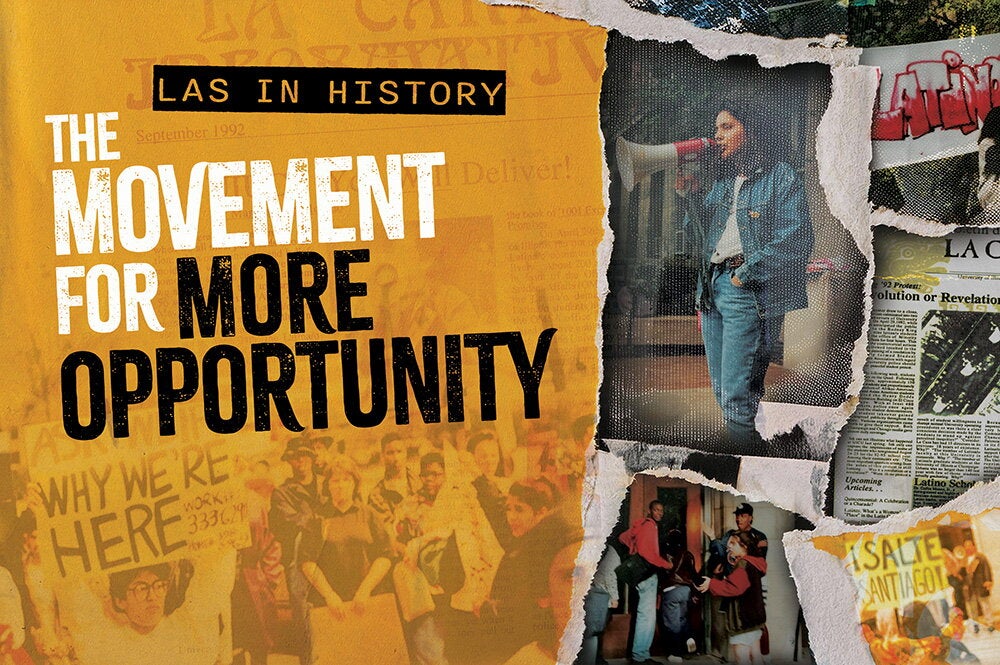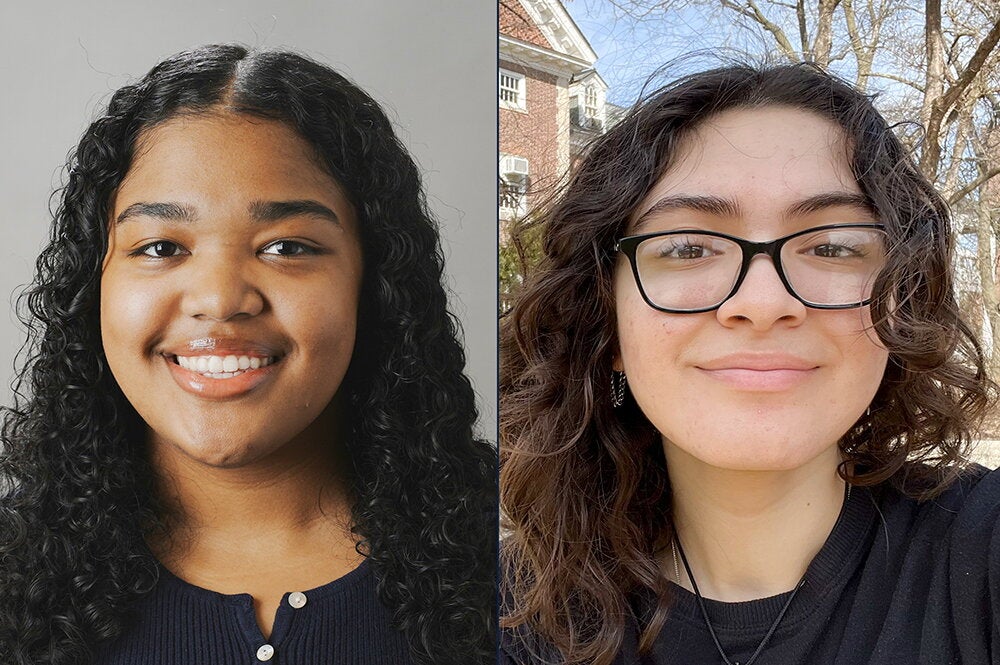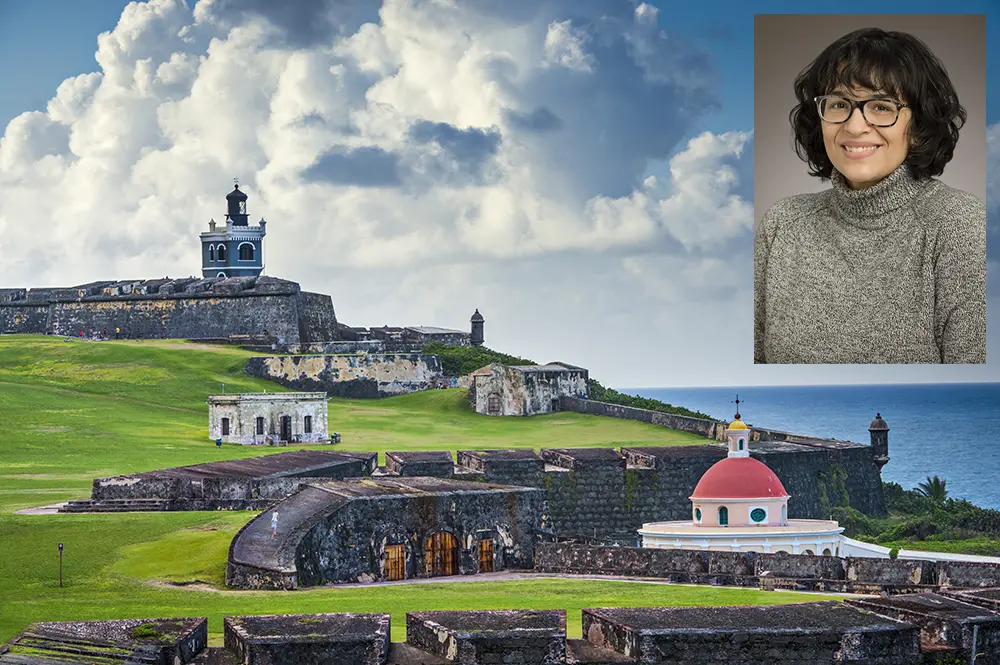
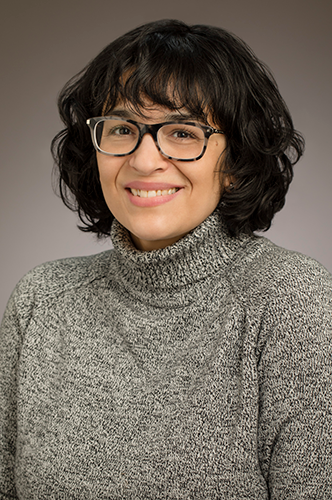
Sandra Ruiz has been compelled by Puerto Rican artists and politics for years. Her new book, “Ricanness: Enduring time in anticolonial performance,” is a reflection of that, focusing on the colonial relationship between the United States and Puerto Rico by analyzing theater, performance photography, and political protest.
The term Ricanness was developed by Ruiz, a professor of Latina/Latino studies and English, as a way to think about the Puerto Rican existence. As she explains it, the word puerto, translated, means port, but the term Ricanness becomes a more empowering and impactful way of talking about this existence.
With a population of more than 3 million, Puerto Rico has been a U.S. territory since the Spanish-American War in 1898. Puerto Ricans are U.S. citizens, but the island does not have representation in the U.S. Congress. Its independence and legal status has been the subject of debate and protest for many years.
Ricanness, Ruiz writes, moves among theater, experimental video, revolutionary protest, photography, poetry, and performance art to address the impact of U.S. colonialism in Puerto Rico. With the book, she references performances from several different artists and activists.
“I think the easiest way to say it is I’m giving you an anti-colonial version of a very colonial story, through the world of aesthetics,” Ruiz said. Published by NYU Press this month, the book exposes readers to chapters that are each focused on different and often unknown Puerto Rican figures.
“I was inspired to showcase the stories of artists, activists, cultural workers, revolutionaries, and thinkers who are mostly unnamed, forgotten, disregarded in narratives of art, history, performance, and cultural studies,” Ruiz said. “Each chapter of the book highlights an important Puerto Rican figure often given scant attention in normative narratives that popularly circulate our globe and tell us what we should think and know about Ricanness.”
One of those figures is Dolores “Lolita” Lebrón, a member of the Puerto Rican Nationalist Party who led a fight for Puerto Rican independence from the United States in the 1950s that resulted in her arrest. Other featured figures Ruiz mentions include ADÁL, a photographer and playwright who was part of a Puerto Rican cultural movement in New York City called the Nuyorican Movement; Papo Colo, a Puerto Rican painter, writer, and curator; and Pedro Pietri, a Puerto Rican poet and playwright and co-founder of the Nuyorican Movement.
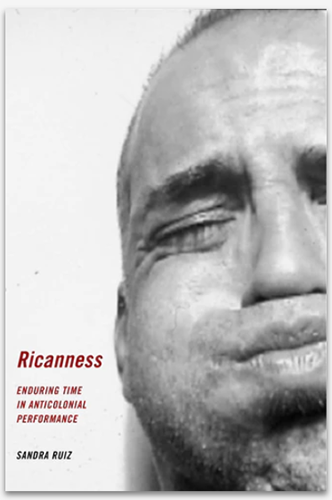
Ruiz said she wanted to create a context for how Ricanness is significant to the world writ large. For example, performances can offer new perspectives and reflections about colonialism across the world. Puerto Rico is one example of this system.
“I offer one way to imagine, interpret, rethink Ricanness by showing how it works in the world,” she said.
Ruiz has been fascinated with Ricanness since her years as an undergraduate college student. She earned her bachelor’s degree in English language and literature at the University of Chicago. She continued her education and received a doctorate in performance studies at New York University in 2011 prior to coming to Illinois to serve as the Chancellor’s Postdoctoral Fellow.
Even though “Ricanness” engages theory and philosophy, it is relatable to a wider audience because of how it touches on art and performance, Ruiz said.
“Reading theory should be enjoyable,” she said, adding that any theory that provokes new ideas and activism should take time to develop and be absorbed by everyone.
Ruiz is currently working on two other projects. One is a book about performance art, psychoanalysis, and pedagogy theory, focusing on what happens inside a classroom. She is also working on a book of poetry, “The Edge of Depth,” which revolves around the nonlinear mourning process.

